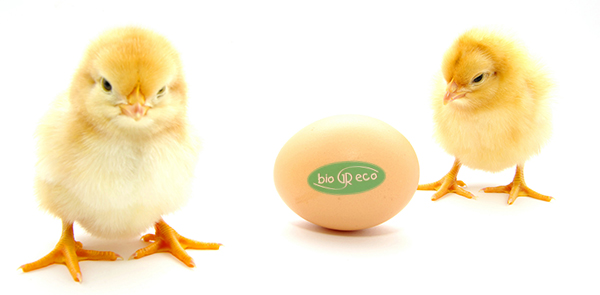What does organic chicken mean?
 What does organic chicken mean?
What does organic chicken mean?
The conditions to be fulfilled in order a chicken to be characterized organic are explicitly referred to in regulations 834/2007 and 889/2008 of the EU. There are set all restrictions and conditions regarding housing and breeding, feeding, diseases’ treatment etc. The most significant points, wherefrom result the differences from the respective conventional ones, are:
1. The breeding conditions: organic chickens graze freely in certified organic farms. In this way they satisfy their natural need to move, dig and be exposed to natural light and fresh air. The breeds chosen are of slow growth, resistant to diseases and with developed instinct for movement and grazing. The slaughter age is at least 81 days (usually reaches 95 days) while for conventional chickens is usually less than 40.
2. Feeding: The diet of organic chickens, apart from grazing, includes certified organic cereals. The use of genetically modified animal feed, artificial amino-acids, animal fat and any kind of growth factors is prohibited.
3. Methods of diseases’ treatment. For diseases’ treatment the preventive use of antibiotics is prohibited, while there are used various alternative methods, such as homeopathy. Very small density in poultry houses (about 7 chickens/ m2), all-day presence of chickens in exterior spaces, use of resistant breeds and lack of “pressure” generally towards the chicken in order to gain quickly weight are the determinants for the prevention of diseases.
4. Control and certification. The control takes place at all stages of production: the fields, the poultry farms, the grazing spaces, the animal feed factories, the poultry slaughterhouses – packaging plants and the distribution procedure. It is effectuated by approved bodies and concerns all the enterprises that produce organic products. The products’ traceability is absolutely guaranteed.
Finally, organic chicken farms are by definition small family units that produce qualitative products with respect to the environment and the sustainability. The choice of organic products generally assists to the viability of the countryside and the stay of young people at areas away from the cities.




